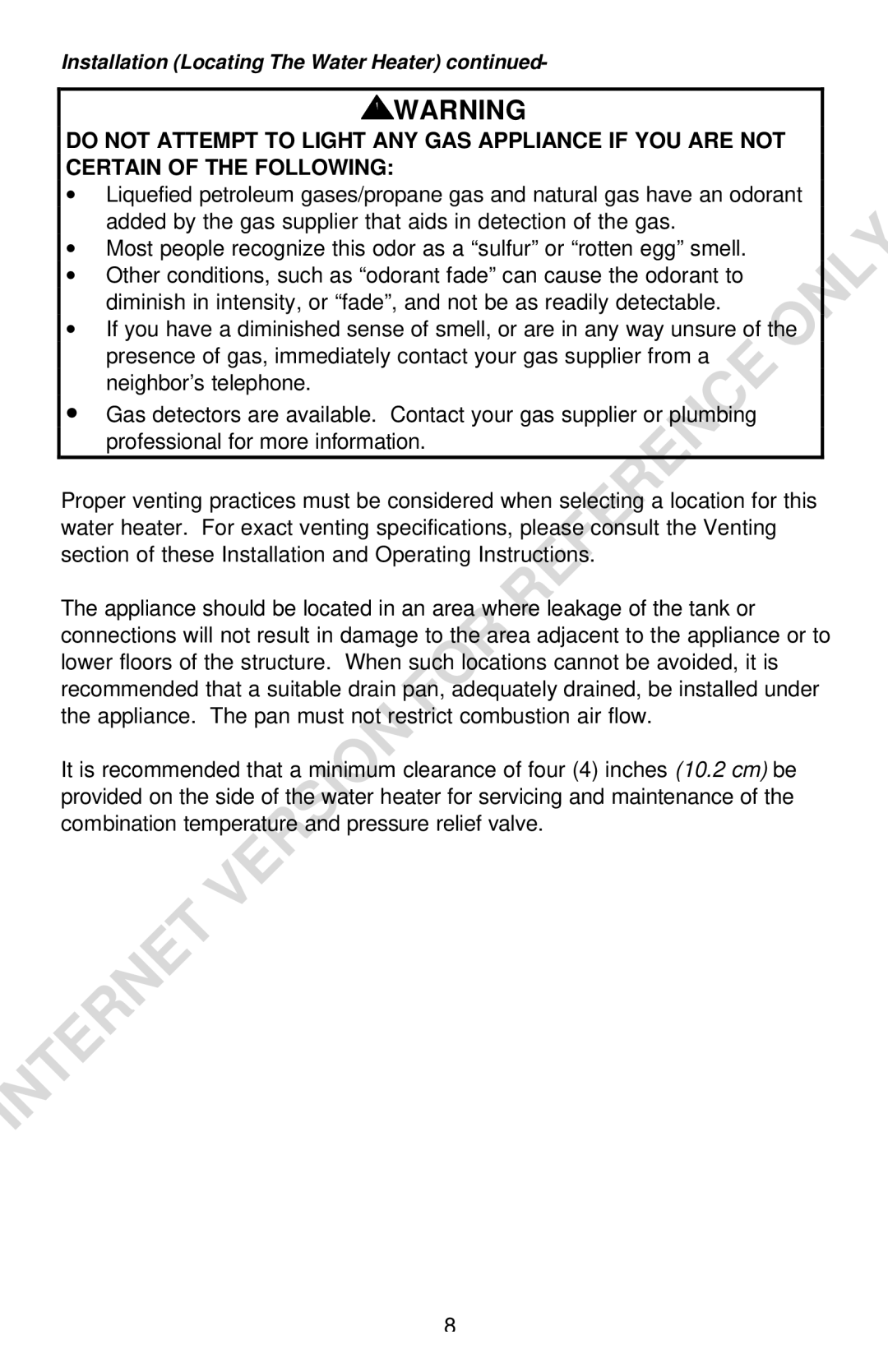Convection Heater specifications
Bradford-White Corp has established itself as a leader in the heating industry, particularly with its innovative convection heaters designed for both residential and commercial applications. These convection heaters are engineered to provide efficient warmth while maximizing energy savings, making them an ideal choice for those seeking reliability and performance.One of the standout features of Bradford-White convection heaters is their advanced heating technology, which ensures a smooth and even distribution of warmth throughout a space. This is achieved through the use of high-quality heat exchangers that optimize the transfer of heat from the heating element to the surrounding air. By utilizing natural convection currents, these heaters maintain a consistent temperature while minimizing draftiness often associated with traditional heating methods.
The compact design of Bradford-White convection heaters allows for flexible installation options, fitting seamlessly into various environments without taking up excessive space. Their sleek and modern aesthetic complements a range of interior decors, making them not only functional but also visually appealing.
Energy efficiency is another key characteristic of these convection heaters. Equipped with advanced insulation materials and smart temperature controls, they operate with reduced energy consumption, resulting in lower utility bills for homeowners and businesses alike. Many models also come with programmable thermostats, allowing users to set specific heating schedules that align with their daily routines.
Durability and reliability are paramount in the manufacturing of Bradford-White convection heaters. Built with high-grade materials and subjected to rigorous testing, these heaters are designed to withstand the demands of daily use while providing safe operation. Features such as overheat protection ensure that the units operate safely, preventing any potential hazards.
Moreover, Bradford-White offers a variety of models to meet different heating needs. From wall-mounted units for smaller spaces to larger floor models for more substantial areas, customers can select the perfect unit to suit their specific requirements. The heaters are also backed by solid warranties, offering peace of mind for those investing in quality heating solutions.
In summary, Bradford-White Corp's convection heaters combine efficiency, design, and advanced technology, making them a top choice for consumers seeking reliable heating solutions. With features tailored to enhance performance and user experience, these heaters are well-suited for diverse applications, ensuring comfort in various environments year-round.

